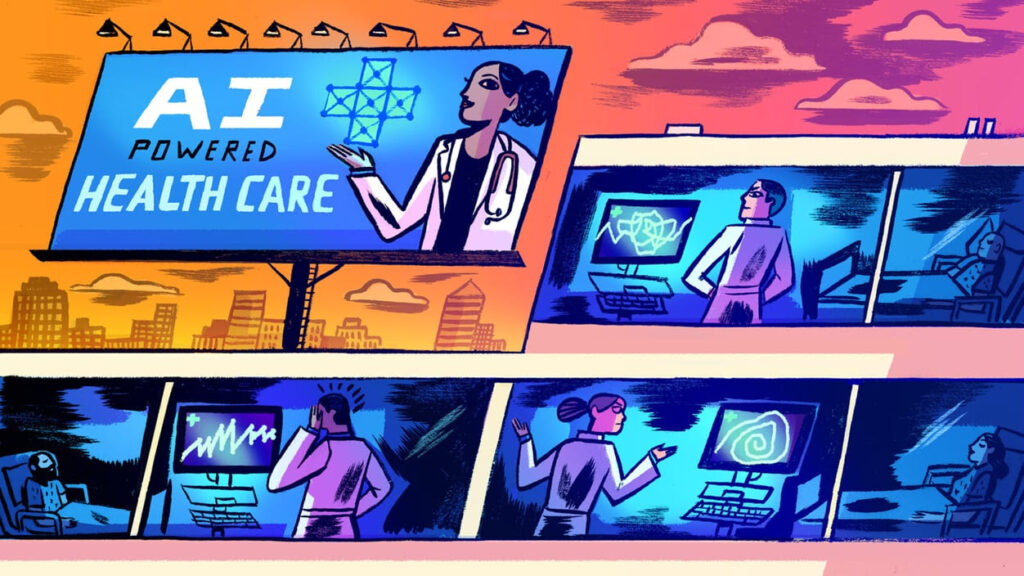You’re reading the web edition of STAT Health Tech, our guide to how tech is transforming the life sciences. Sign up to get this newsletter delivered in your inbox every Tuesday and Thursday.
How doctors are learning to work with GPT-4
advertisement
Last week at Beth Israel Deaconess Medical Center, medical residents got a chance to test GPT-4 on a patient case, a workshop the hospital’s training physicians hope can help prepare the next generation of medical minds for the technology.
“It’s going to be utterly, utterly transformative, and medical education is not ready,” said Adam Rodman, a clinical reasoning researcher who co-directs the iMED initiative at Beth Israel. “And the people who have realized what a big deal it is are all kind of freaking out.” Read the on-the-ground dispatch from Katie and STAT’s Brittany Trang.
Inside the lab, researchers are highlighting the kind of problems those residents could run into using the tool. A recent preprint shows that GPT-4 displays subtle, but systemic racial and gender bias when it’s put to a number of clinical tasks. Read more from Katie.
advertisement
Shifting tides for weight loss drugs
As GLP-1 drugs grow in popularity, businesses are adapting to handle the influx of interest. At Noom, which grew up as a behavior-based coaching tool for weight loss, that has meant the launch of a new service to prescribe weight loss medications — and on Wednesday, a new CEO to head up the company. Geoff Cook, who previously led online dating company the Meet Group, will replace founder Saeju Jeong, who will now be executive chairman.
Meanwhile, TikTok is cracking down on some users who post frequently about the weight loss drugs. The social media platform has played a large role in the demand for GLP-1s, but earlier this month, TikTok banned dozens of accounts, many of which make money via partnerships with weight loss-focused telehealth companies.
“My hunch is TikTok may be worried about this potential avalanche of concern coming from both irresponsible prescribing that may be happening, as well as compounded drugs that we know should not be in the market to begin with,” Brooke Boyarsky Pratt, founder and CEO of obesity care company knownwell, told Katie. Read more here.
A new deal to ramp up use of AI in rehab care
AI is becoming a powerful force in medical decision-making — and its influence is about to increase. The health data company Innovaccer announced a deal with Post Acute Analytics (PAC) to ramp up the use of AI-guided decisions in rehab care. The idea is to combine PAC’s proprietary AI engine, Anna, with Innovaccer’s technology to analyze data on rehab care and reduce the days patients spend recovering in skilled nursing facilities. In an ideal world (the one described in press releases) patients get home quicker, their care costs less, and everyone is happy.
But in the real world, where these theoretically aligned interests sometimes clash, it’s the interests of insurers and owners of the technology that tend to win out over patients, as STAT’s Casey Ross and Bob Herman have reported.
In other digital health news…
Things aren’t looking great in the land of digital therapeutics.
Orexo, a Swedish pharmaceutical company, did well in all areas except for digital therapeutics, the company reported in its second quarter earnings call on Tuesday. During the pandemic, Orexo invested heavily in digital products to treat opioid use disorder, problematic drinking, and depression. But it’s seen no revenues from these products. Earlier this year, the company announced it would scale the apps back. Read more here.
Mental health app developer Twill is looking for a pharma partner to market Aspiro, its cognitive behavioral therapy treatment for anxiety and depression. Twill executives told Mario they hope pharma companies will be interested in pairing the digital therapeutic with a drug. Without a drugmaker partner, they won’t take Aspiro to market. Read more here.
Using noisy data for better heart wearable readings
There’s a growing opportunity to screen more adults for heart disease as more people buy Apple Watches and other wearables. But wearables just aren’t as good at picking up on the heart’s electrical signals and rhythm as hospital-grade electrode sensors. Wearables shift on sweaty skin, or pick up outside electrical interference.
So a team of Yale researchers tried something different: training an AI algorithm on noisy electrocardiograms, electrical pulse recordings that illustrate heart function. Starting an algorithm off with this data could help it more easily adapt to real-world use. “You could say I’m going to find the clean, pristine-looking ECG that looks a lot more like the ECG done in a clinical setting, and only use those for diagnostics,” study author Rohan Khera told Lizzy. “But that’s not the reality. Clinical ECGs are not obtained on wristwatches.” Read more here.

